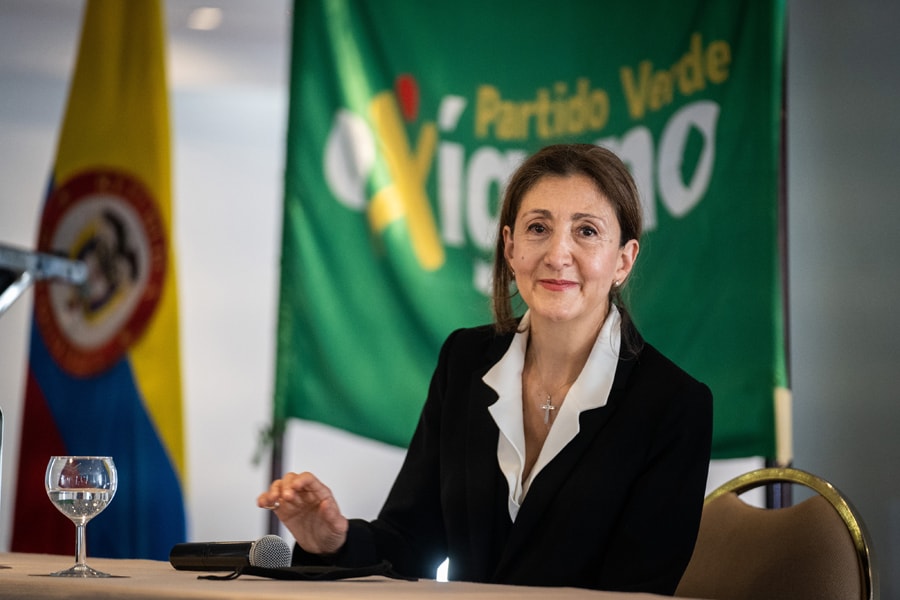
Once a hostage, she's now running for President of Colombia
Ingrid Betancourt, a former congresswoman and one-time guerrilla hostage who has come to symbolise both the brutality of Colombia's long war and the country's efforts at reconciliation, will run for president
 Ingrid Betancourt, the politician and former Revolutionary Armed Forces of Colombia hostage, at a news conference in Bogota, Colombia on Tuesday, Jan. 18, 2022, where she announced she will run for president. Many in Colombia are fed up with the political status quo, a sentiment that burst into the public sphere last May, when thousands took to the streets for more than a month to protest hardship that was only made worse by the pandemic. (Nathalia Angarita/The New York Times)
Ingrid Betancourt, the politician and former Revolutionary Armed Forces of Colombia hostage, at a news conference in Bogota, Colombia on Tuesday, Jan. 18, 2022, where she announced she will run for president. Many in Colombia are fed up with the political status quo, a sentiment that burst into the public sphere last May, when thousands took to the streets for more than a month to protest hardship that was only made worse by the pandemic. (Nathalia Angarita/The New York Times)
BOGOTÁ, Colombia — Ingrid Betancourt, a former congresswoman and one-time guerrilla hostage who has come to symbolize both the brutality of Colombia’s long war and the country’s efforts at reconciliation, will run for president, she said Tuesday.
Betancourt enters a wide open race at a time when Colombia is at a critical political and social crossroads.
When she was kidnapped 20 years ago, Betancourt was campaigning for the same office. Now, she said, the country is facing the same “corrupt system” and “political machinery” that she had fought back then.
“Today I am here to finish what I started,” she said, standing on a stage at a hotel in downtown Bogotá, the country’s capital, flanked by allies.
Betancourt, who was captured in 2002 and held by the country’s largest guerrilla force, the Revolutionary Armed Forces of Colombia, for more than six years, announced her bid for the May election with the country facing enormous challenges.
©2019 New York Times News Service







